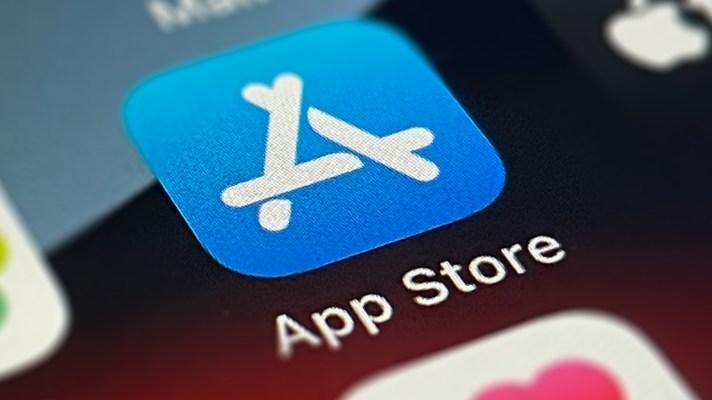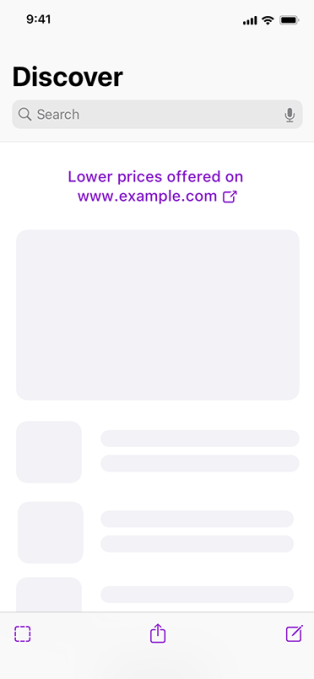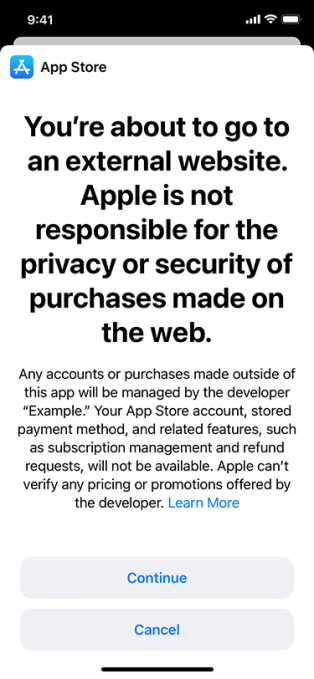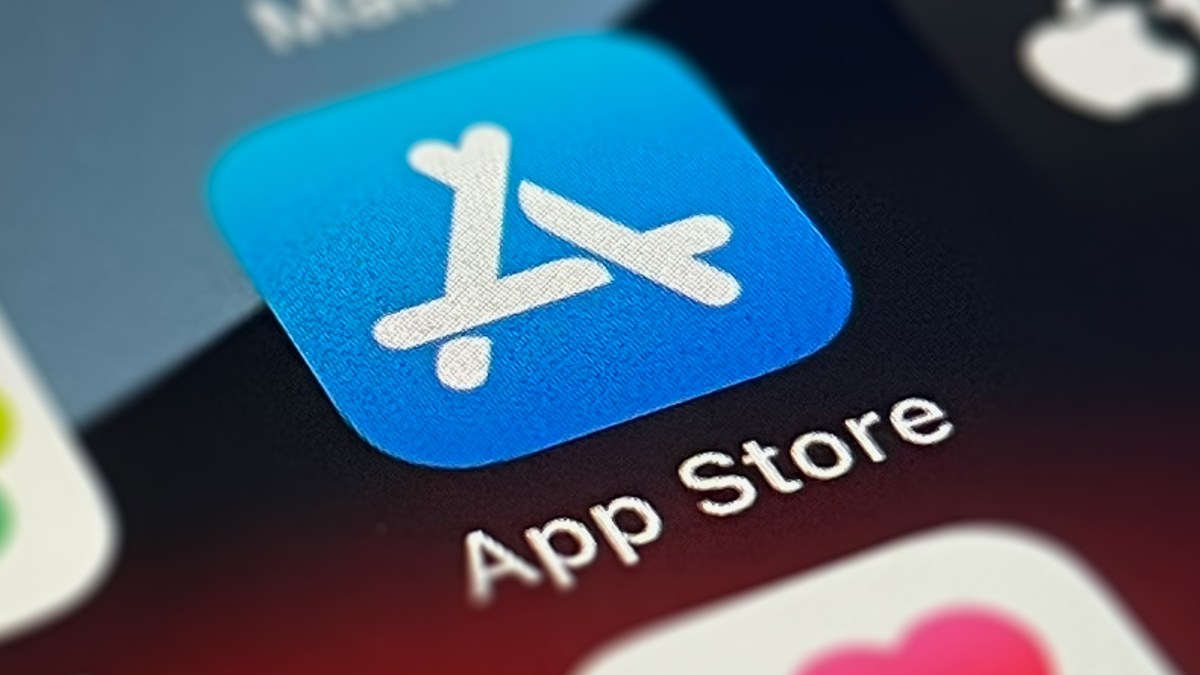
Apple updated its developer guidelines today to allow U.S-based developers to link out to the web to inform users about other ways to subscribe to a service without using in-app purchases. This followed the U.S. Supreme Court’s decision not to hear appeals from both Apple and Epic Games on Tuesday.
The company mentioned on a support page that, even if developers use a link to direct users to other options for digital purchases, they will have to pay a 27% cut to Apple. For developers who are part of Apple’s Small Business Program or who are auto-renewing subscriptions for a second year, the fee is reduced to 12% instead of 15%.
Essentially, Apple is giving developers a discount of 3 percentage points to use alternative payment methods. This might not be enough in some cases as developers will still have to pay fees to another payment processor. Notably, Apple allows a 3-point discount for Dutch dating apps and a 4-point discount on its commissions for apps in South Korea.
In 2021, a lower court ruled that Apple can’t block developers from including links in the app leading to alternative payment methods. With the latest Supreme Court decision, the Cupertino-based tech giant will have to follow the order.
In an update outlining the App Store rule changes, the company insisted that Apple’s payment system is the “the most convenient, safe, and secure” method for in-app purchases. It also noted that if developers used other payment methods, features like Family Sharing wouldn’t be available to users, and Apple wouldn’t be able to help customers with refunds and subscription management — putting the onus on developers.
Apple also mentioned that developers have to apply to get permission to include links in their apps. Plus, the developer will need to submit transaction reports within 15 days of a calendar month’s ending.

Apple’s example for showing a link leading to purchase from a website Image Credits: Apple
The iPhone maker also detailed interface guidelines for developers to follow including the text to indicate that users might not be able to use features like subscription management if they use a third-party payment option.

Apple’s outline to show text to customers indicating that they are about to use an alternative payment method Image Credits: Apple
Even after publishing these guidelines, Apple feels that collecting a commission will be “exceedingly difficult, and in many cases, impossible” because of the scale of the App Store, as noted by 9to5Mac.
According to a report by data.ai, the app economy showed a sign of recovery as consumers spent over $171 billion across App Store, Google Play Store, and other Android app stores. However, regulatory moves such as the EU’s Digital Markets Act (DMA) will force Apple to allow sideloading and third-party app stores — a move that might impact the App Store revenue.
Apple is not alone in facing regulatory scrutiny regarding app distribution on phones. In December, a jury found Google guilty in a case against Epic Games and deemed that the search giant engaged in anticompetitive behavior. Now, it’s up to the judge to decide the next steps and remedies.
Separately, In December, Google paid $700 million in settlement with the U.S. attorney general over another case on Play Store’s monopoly. As part of the case, the company made changes to the Play Store model to allow alternative billing for developers.
Earlier this month, Google announced that it would allow more types of real-money apps on the Play Store later this year and take fees from developers in a bid to bolster its bottom line.



.png#keepProtocol)




.png#keepProtocol)
More Stories
Biggest stock movers today: Okta, Snowflake, and more (NASDAQ:OKTA)
EU leader warns of risks of wider war; NATO rules out sending troops to Ukraine
Bitcoin soars to two-year high above $56,700 as halving event looms